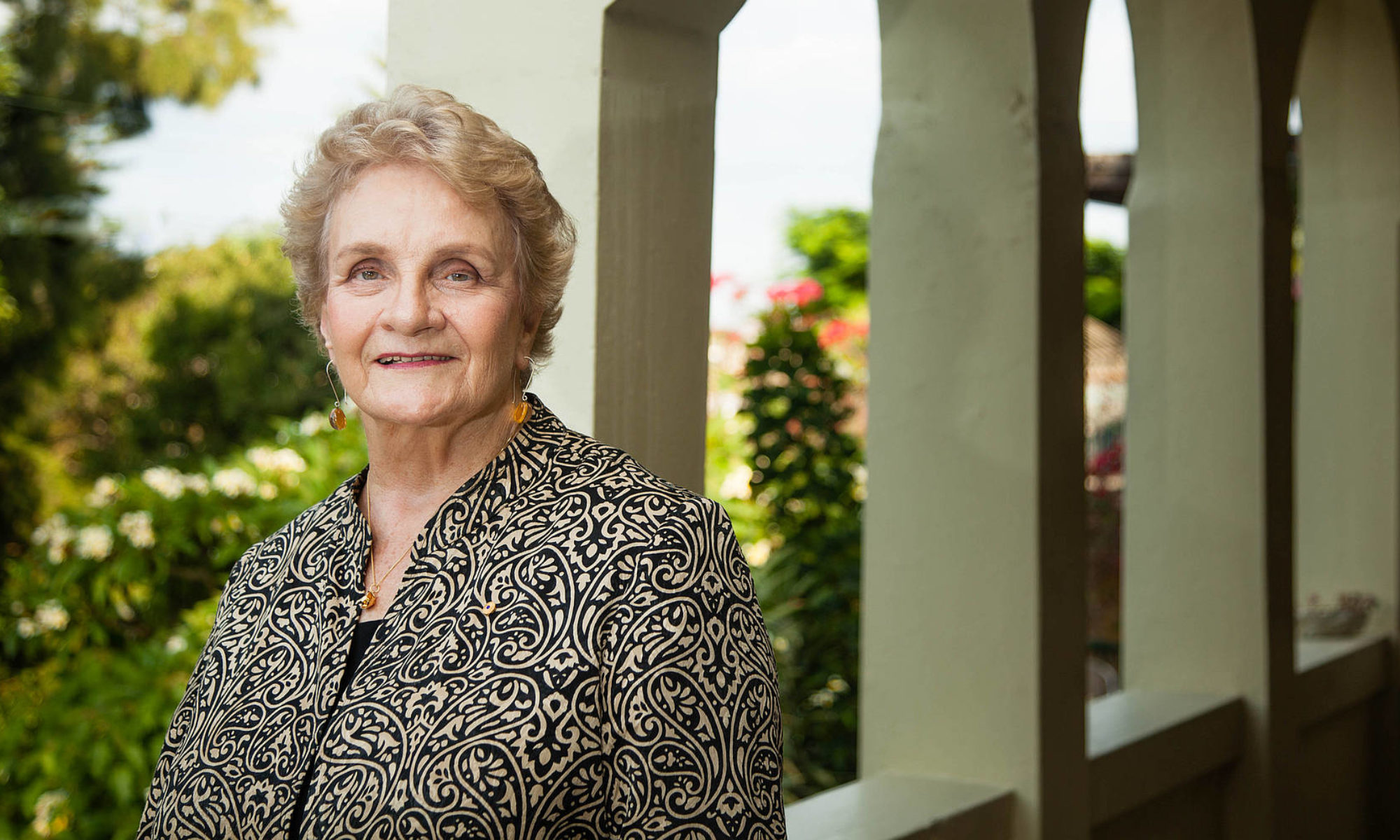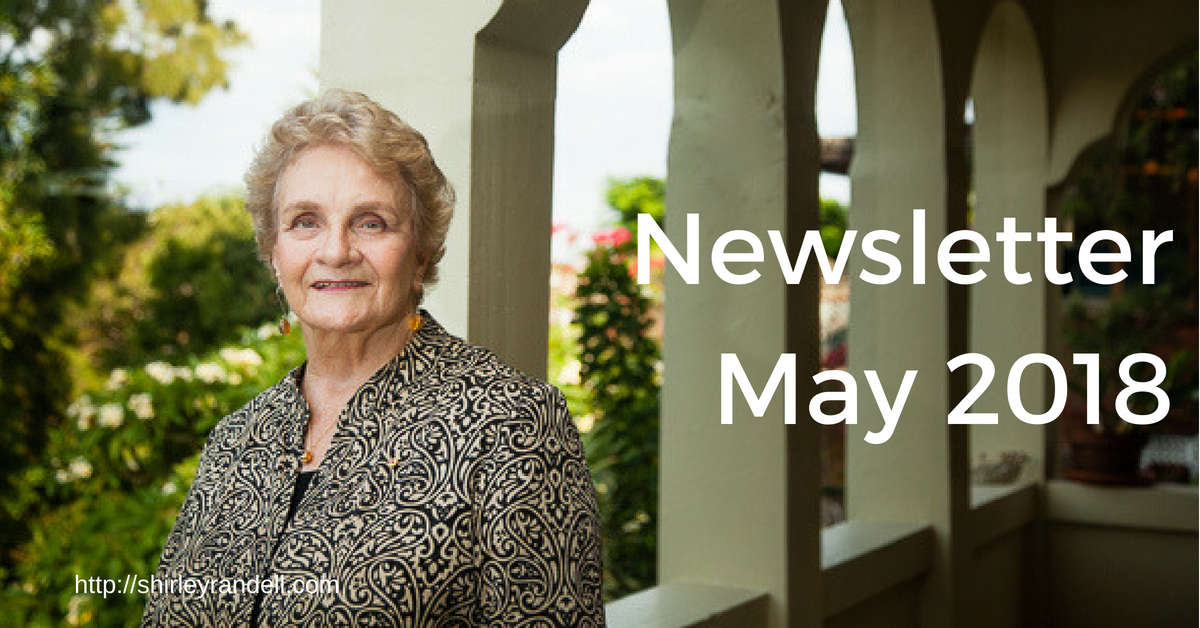Dear friends
My intention in these newsletters is to highlight the challenges facing women and mostly the progress that they are making around the world, often underreported.
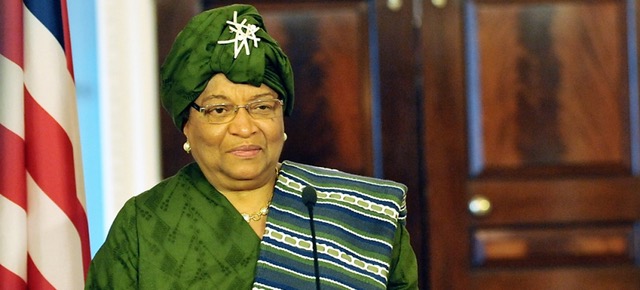
This time I start by recognising the outstanding achievements of the former President of Liberia, Ellen Johnson Sirleaf who has just been awarded in Rwanda the Mo Ibrahim Foundation’s Prize for Achievement in African Leadership Governance. After that, however, I will highlight the attainments of two significant men. The first is Professor Joseph Stiglitz, Nobel Prize winning economist and champion for global economic justice, who has won the 2018 Sydney Peace Prize for leading a global conversation about the crisis caused by economic inequality while advocating for just solutions to the defining challenge of our time. The second is Tim Hammond, a promising member of the Australian federal parliament who has resigned from a key shadow portfolio position to put his family – his wife and three young children ahead of his political career. Doing this in the face of what society expects of men, he has opened a conversation that we should all be having with the young men in our lives,
As usual it is a long letter so please choose from the links below any particular items of special interest.
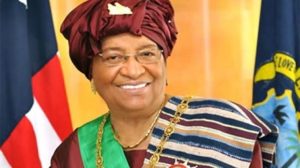 Rwanda hosted the celebration of Mo Ibrahim Foundation’s Prize for Achievement in African Leadership Governance, won by former President of Liberia, Ellen Johnson Sirleaf who is nearly 80 years old. Liberia was the only country to improve in every category and sub-category of the Ibrahim Index of African Governance. She praised President Paul Kagame for the outstanding development that has taken place in Rwanda and quoted his words, “What we are doing here in Rwanda is not a miracle, nor is it impossible elsewhere, it is simply the commitment of an entire nation, especially Rwandan youth and women.” Sirleaf said, “I receive this distinction on behalf of the many women and men who helped to navigate the profound complexities of the post-conflict country that is Liberia. As the first woman to receive this award it is my hope that women and girls across Africa will be inspired to break through barriers and push back on the frontiers of life’s possibilities.”
Rwanda hosted the celebration of Mo Ibrahim Foundation’s Prize for Achievement in African Leadership Governance, won by former President of Liberia, Ellen Johnson Sirleaf who is nearly 80 years old. Liberia was the only country to improve in every category and sub-category of the Ibrahim Index of African Governance. She praised President Paul Kagame for the outstanding development that has taken place in Rwanda and quoted his words, “What we are doing here in Rwanda is not a miracle, nor is it impossible elsewhere, it is simply the commitment of an entire nation, especially Rwandan youth and women.” Sirleaf said, “I receive this distinction on behalf of the many women and men who helped to navigate the profound complexities of the post-conflict country that is Liberia. As the first woman to receive this award it is my hope that women and girls across Africa will be inspired to break through barriers and push back on the frontiers of life’s possibilities.”
Some of the words in Sirleaf’s acceptance speech resonate with my life experience. “God has bequeathed upon me a restless spirit. One that is never fully satisfied, always believing things can be better – for Liberians, for Africa, for people in poverty, for women and girls around the world. And now, after eight decades, I have come to realize that this impatience, which at certain times in my life felt to be an unrelenting burden, is actually a gift—a great treasure. I am convinced it is this restless spirit, in part, which drove me to public service and, like a wind against my back, propelled me forward towards dreams I had yet to even visualize. I submit that it is a restlessness that took hold of our fallen sister, Winnie Madikizela-Mandela, giving her the fiercest of courage to stand up against Apartheid State despite the imprisonment of her husband, and in the face of physical and psychological abuse. Her indomitable spirit will continue to drive me through my remaining years.”
 Each year the Sydney Peace Foundation honours a nominee who has promoted ‘peace with justice’, human rights and non-violence. Professor Joseph Stiglitz, Columbia University professor, former chief economist at the World Bank, Nobel Prize winning economist and champion for global economic justice has won the 2018 Sydney Peace Prize. He is well known for his criticism of trickle-down economics as well as his work on bridging the inequality gap, one of the biggest challenges our world faces today. The top 1% of the population is undermining the future of the 99% – a haunting reality and powerful concept he has pioneered since the 1960s. Around the world, the gap between the rich and poor is spiralling out of control, growing wider each year. Oxfam recently reported that eight billionaires own the same wealth as the poorest half of the world. Inequality is created and is the result of deliberate policy choices by people in power.
Each year the Sydney Peace Foundation honours a nominee who has promoted ‘peace with justice’, human rights and non-violence. Professor Joseph Stiglitz, Columbia University professor, former chief economist at the World Bank, Nobel Prize winning economist and champion for global economic justice has won the 2018 Sydney Peace Prize. He is well known for his criticism of trickle-down economics as well as his work on bridging the inequality gap, one of the biggest challenges our world faces today. The top 1% of the population is undermining the future of the 99% – a haunting reality and powerful concept he has pioneered since the 1960s. Around the world, the gap between the rich and poor is spiralling out of control, growing wider each year. Oxfam recently reported that eight billionaires own the same wealth as the poorest half of the world. Inequality is created and is the result of deliberate policy choices by people in power.
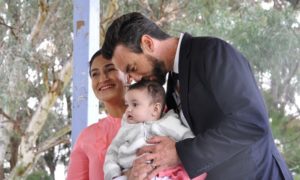 Tim Hammond, a prominent shadow minister in the Australian federal parliament shocked the nation when he resigned a promising political vocation putting his family ahead of career in the face of what society expects. He explained that with children aged six, two and a half, and seven months, he could no longer balance his work and family life. The cost of negotiating family and work is territory familiar to every wife, mother and daughter around the world. However, despite the rise of men working part-time, it is still uncommon to see a man publicly engage in a significant career change in order to spend more time at home. He said, “We have tried everything we can to keep all of this together in a way that isn’t going to compromise the strength of what we all have as a family.” It is important to continue to change our workplaces so that all workers can have an acceptable work-life balance. A young family places demands on mothers and fathers and they only have a single chance of watching small people grow and forming a good relationship with them. Young men need to be told that a career can wait, but babies cannot. Hammond plans to go back into the law, representing the sick and dying, and Aboriginal victims, while being “at home every night”.
Tim Hammond, a prominent shadow minister in the Australian federal parliament shocked the nation when he resigned a promising political vocation putting his family ahead of career in the face of what society expects. He explained that with children aged six, two and a half, and seven months, he could no longer balance his work and family life. The cost of negotiating family and work is territory familiar to every wife, mother and daughter around the world. However, despite the rise of men working part-time, it is still uncommon to see a man publicly engage in a significant career change in order to spend more time at home. He said, “We have tried everything we can to keep all of this together in a way that isn’t going to compromise the strength of what we all have as a family.” It is important to continue to change our workplaces so that all workers can have an acceptable work-life balance. A young family places demands on mothers and fathers and they only have a single chance of watching small people grow and forming a good relationship with them. Young men need to be told that a career can wait, but babies cannot. Hammond plans to go back into the law, representing the sick and dying, and Aboriginal victims, while being “at home every night”.
[su_button url=”#politics” style=”flat” icon=”icon: arrow-down”]Politics[/su_button]
[su_button url=”#equality” style=”flat” icon=”icon: arrow-down”]Equality Issues[/su_button]
[su_button url=”#boards” style=”flat” icon=”icon: arrow-down”]Women on Boards[/su_button]
[su_button url=”#australia” style=”flat” icon=”icon: arrow-down”]Women in Australia[/su_button]
[su_button url=”#witw” style=”flat” icon=”icon: arrow-down”]Women In The World[/su_button]
[su_button url=”#sport” style=”flat” icon=”icon: arrow-down”]Women and Sport[/su_button]
[su_button url=”#travel” style=”flat” icon=”icon: arrow-down”]Work and Travels.[/su_button]
[su_button url=”#bereavments” style=”flat” icon=”icon: arrow-down”]Bereavements[/su_button]
Women in Politics.
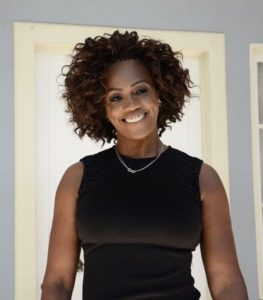 Epsy Campbell Barr is the first black person and the first woman ever to become vice president in Costa Rica, and the first black woman to do so in Latin American history. She is one of the founders of the ruling Citizen Action Party and will be second in command to president-elect Carlos Alvarado Quesada. Campbell Barr said, “It will be a responsibility not only to represent people of African descent but to represent all women and men in the country, a country that gives us all the same opportunities”. Born in San Jose, she is a third generation Costa Rican of Jamaican descent, named in honour of her paternal grandmother who emigrated from Jamaica. Campbell Barr follows in the footsteps of Thelma Curling, the first Afro-Costa Rican legislator, Victoria Garron the first vice-president and Laura Chinchilla the country’s first female president.
Epsy Campbell Barr is the first black person and the first woman ever to become vice president in Costa Rica, and the first black woman to do so in Latin American history. She is one of the founders of the ruling Citizen Action Party and will be second in command to president-elect Carlos Alvarado Quesada. Campbell Barr said, “It will be a responsibility not only to represent people of African descent but to represent all women and men in the country, a country that gives us all the same opportunities”. Born in San Jose, she is a third generation Costa Rican of Jamaican descent, named in honour of her paternal grandmother who emigrated from Jamaica. Campbell Barr follows in the footsteps of Thelma Curling, the first Afro-Costa Rican legislator, Victoria Garron the first vice-president and Laura Chinchilla the country’s first female president.
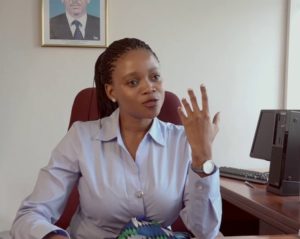 Bogolo Joy Kenewendo is Minister of Investment Trade and Industry in Botswana after being specially elected by the President. At 30 years old, she is also the youngest MP in the country. Kenewendo won a Chevening scholarship to complete a Master of Science degree in International Economics at the University of Sussex. She was one of two Botswana youth delegates to the 64th Session of the UN General Assembly where she presented a statement of African youth. Kenewendo has been working as a trade economist in the Ministry of Trade and Industry in Ghana and was previously employed as an economic consultant at Econsult Botswana. Her priority coming into office is the revitalisation of the economy through better job’s perspectives. Her motto is ‘Dream it, believe it and make it happen’.
Bogolo Joy Kenewendo is Minister of Investment Trade and Industry in Botswana after being specially elected by the President. At 30 years old, she is also the youngest MP in the country. Kenewendo won a Chevening scholarship to complete a Master of Science degree in International Economics at the University of Sussex. She was one of two Botswana youth delegates to the 64th Session of the UN General Assembly where she presented a statement of African youth. Kenewendo has been working as a trade economist in the Ministry of Trade and Industry in Ghana and was previously employed as an economic consultant at Econsult Botswana. Her priority coming into office is the revitalisation of the economy through better job’s perspectives. Her motto is ‘Dream it, believe it and make it happen’.
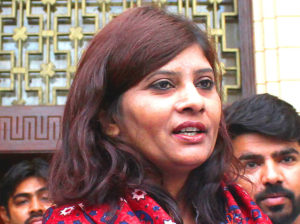 Krishna Kumari Kohli, is the first ever lower-caste Hindu Dalit woman to be elected as a Senator in Pakistan, a Muslim-majority South Asian nation. A member of the left-leaning Pakistan People’s Party (PPP), she is one of the ‘untouchables’, the lowest rung of the caste system that still prevails in Pakistan and neighbouring India. Kumari was married off while she was in ninth grade, but her husband and in-laws supported her education. In 2013 she completed her post-graduation in sociology from the Sindh University. She worked for a non-governmental organization (NGO) before joining the PPP of the assassinated former Prime Minister Benazir Bhutto, actively working for the rights of downtrodden people of marginalised communities. “I feel delighted, this was unthinkable for me to reach the senate”, Kumari said. The number of non-Muslims elected by the opposition party is now six, the highest minority representation in the upper house in the history of the country.
Krishna Kumari Kohli, is the first ever lower-caste Hindu Dalit woman to be elected as a Senator in Pakistan, a Muslim-majority South Asian nation. A member of the left-leaning Pakistan People’s Party (PPP), she is one of the ‘untouchables’, the lowest rung of the caste system that still prevails in Pakistan and neighbouring India. Kumari was married off while she was in ninth grade, but her husband and in-laws supported her education. In 2013 she completed her post-graduation in sociology from the Sindh University. She worked for a non-governmental organization (NGO) before joining the PPP of the assassinated former Prime Minister Benazir Bhutto, actively working for the rights of downtrodden people of marginalised communities. “I feel delighted, this was unthinkable for me to reach the senate”, Kumari said. The number of non-Muslims elected by the opposition party is now six, the highest minority representation in the upper house in the history of the country.
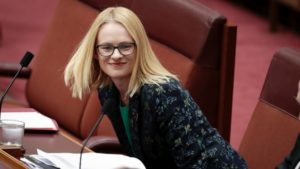
Several new female politicians have taken up positions in the Australian Federal parliament this year. Ged Kearney has a seat in the lower house while Kristina Keneally and Amanda Stoker are in the Senate. At 35, Stoker becomes one of youngest women in the Senate, and brings an extensive legal background to the role of Attorney General. She has stated her areas of focus: “I’m ready to fight to improve the international competitiveness of Australian students’ school performance, and to ensure there are high-quality education opportunities available in regional Queensland.”
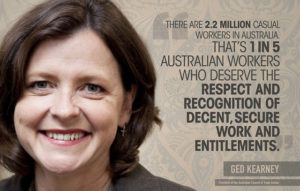 Kearney is the first woman ever elected to Batman in the electorate’s 112-year history. A former President of the Australian Council of Trade Unions she has a long history of fighting for better working conditions. She is a passionate and vocal advocate for social justice and gender equality and a fierce supporter for more funding of domestic violence shelters, employer-paid schemes and resources. “I don’t just want to be a voice for your values – I want to make a real change,” she said.
Kearney is the first woman ever elected to Batman in the electorate’s 112-year history. A former President of the Australian Council of Trade Unions she has a long history of fighting for better working conditions. She is a passionate and vocal advocate for social justice and gender equality and a fierce supporter for more funding of domestic violence shelters, employer-paid schemes and resources. “I don’t just want to be a voice for your values – I want to make a real change,” she said.
Women now represent 48% of Labor MPs in the federal parliament – the closest either of the major Australian parties has come to parity. As recently as the late-1970s, there were no women in the House of Representatives. It is interesting to see the results of this in policymaking. Recently, the opposition announced that they will provide the Australian Bureau of Statistics with extra resources to reinstate the time use survey, a vital resource for measuring unpaid work, and remove the GST from tampons and pads – replacing the revenue by removing the exemption for natural therapies that are not backed by sound science. These are sensible, mainstream policies, reversing decisions that were made by male-dominated cabinets and party rooms, and indicate that governments are more likely to get policy right when they have a party room that looks like the nation as a whole. The government has handed down its third budget without elaborating on its announcement that ‘significant’ funding of more than $100m would be set aside in the contingency reserves for the Women’s Economic Security Statement to be made around September 2018. The opposition’s Women’s Budget Statement put the economic disadvantage of women on the national political agenda, promising to narrow gender pay disparity.
In the federal parliament the Liberal party has 19 women out of the 84 Liberal MPs and senators, comprising around 22%, which is the party’s lowest number since 1993. In the Senate, women now hold 32 seats of 76, or roughly 42% of the chamber, while in the lower house women occupy 44 of the 150 positions, comprising almost 30% of seats. 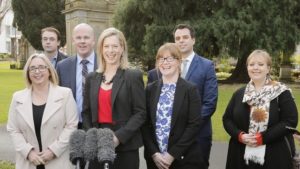 On the other hand, Rebecca White and Michelle O’Byrne leaders of Tasmania’s Labor team have achieved a lower house caucus of 70% women, all of whom are EMILY’s List MPs. This is accompanied in the Tasmanian upper house with 50% Labor women. Tasmanian women introduced affirmative action quotas into the party in 1998, and this has proved how effective they are in achieving gender equality. EMILY’s List parliamentarians fight for choice, equal pay, childcare, diversity, and equity in legislation and policy to make meaningful changes to the lives of women.
On the other hand, Rebecca White and Michelle O’Byrne leaders of Tasmania’s Labor team have achieved a lower house caucus of 70% women, all of whom are EMILY’s List MPs. This is accompanied in the Tasmanian upper house with 50% Labor women. Tasmanian women introduced affirmative action quotas into the party in 1998, and this has proved how effective they are in achieving gender equality. EMILY’s List parliamentarians fight for choice, equal pay, childcare, diversity, and equity in legislation and policy to make meaningful changes to the lives of women.
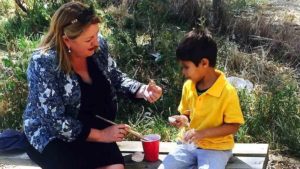 The Victorian Government’s Minister for Women and the Prevention of Family Violence, Natalie Hutchins has launched a new peak organisation, Gender Equity Victoria (GEN VIC), that aims to promote gender equity and women’s sexual and reproductive health, prevent violence against women, and build an influential and sustainable peak body. Victoria has already made significant investments in addressing gender inequality across the state. In late 2016 it launched its first gender equality strategy, outlining a series of reforms and initiatives affecting government, business, sporting clubs and the media. It has also previously pledged half a billion dollars to addressing domestic and family violence. GEN VIC’s convener, Kristine Olaris, said “Until women are paid equally to men, until women’s autonomy over their own bodies ceases to be questioned, until all women are safe in their homes and in public, there’s still much more work to be done.”
The Victorian Government’s Minister for Women and the Prevention of Family Violence, Natalie Hutchins has launched a new peak organisation, Gender Equity Victoria (GEN VIC), that aims to promote gender equity and women’s sexual and reproductive health, prevent violence against women, and build an influential and sustainable peak body. Victoria has already made significant investments in addressing gender inequality across the state. In late 2016 it launched its first gender equality strategy, outlining a series of reforms and initiatives affecting government, business, sporting clubs and the media. It has also previously pledged half a billion dollars to addressing domestic and family violence. GEN VIC’s convener, Kristine Olaris, said “Until women are paid equally to men, until women’s autonomy over their own bodies ceases to be questioned, until all women are safe in their homes and in public, there’s still much more work to be done.”
Equality Issues.
The Better World We Live In. As former President Barack Obama has pointed out, there is much to be positive about in the world today. In a recent radio interview with Prince Harry, he said, “If you had to choose a moment in human history in which you’d want to be born you’d choose today because the fact is that the world is healthier, wealthier, better educated and more tolerant, more sophisticated and less violent”.
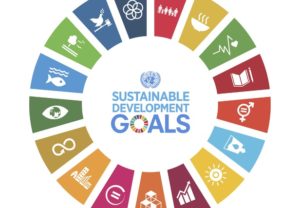
Country reports made in 2017 to the UN on progress made against the Global Sustainable Development Goals (SDGs) show that many more people have escaped poverty (768 million people still need to do so); fewer live in hunger; and fewer children die during childbirth. 85% of those living in urban areas now have access to safe water, and girl’s access to education is slowly catching up with boys. In several countries there are major efforts to address the plight of the homeless. UNESCO reports that the worldwide literacy level for 15-year olds & above is 86%. Even more progress could be made if equality issues could be more seriously addressed.
McKinsey Global Institute’s latest research on the Australian economy indicates that GDP could increase 12%, or by US$225 billion a year (AU$297 billion at current exchange rates) if we could advance women’s equality. Supporting women in the workforce is particularly needed for women aged 24 to 35 who have children, where the workforce participation rate is 75%, compared to the male participation rate of 91%. A larger number of Australian women in this cohort stop working outside the home. Significant structural impediments include the expensive and inflexible nature of childcare, and the continued burden of unpaid work that women take on. There’s also the gender pay gap, creating more incentive for fathers to be in the workforce than mothers. The report also finds that the Asia Pacific region could add a collective $4.5 trillion to annual GDPs in 2025 by advancing women’s equality, which would be a 12% increase. 58% of such potential growth would come from raising women’s workforce participation rates, while further gains would be made by putting women in higher-productive sectors and boosting the work hours of women.
Women on Boards.
Of the 56 appointments to Australian Security Exchange 200 boards in the first three months of 2018, 52% have been women. This marks the first time that female appointments to ASX 200 boards have exceeded male appointments since the Australian Institute of Company Directors (AICD) began tracking monthly appointment rates. It compares to 33% female appointments in the first quarter of 2017 and 44% over the first quarter of 2016.
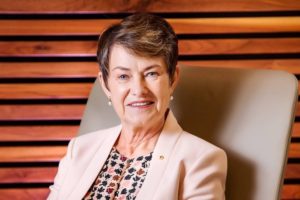
AICD Chairman Elizabeth Proust AO welcomed the figures but warned against complacency. “When it comes to increasing gender diversity on Australia’s largest boards, we know that it’s never been a supply problem, it’s been a demand problem,” she said. “We will only reach our target of 30% female representation across ASX 200 boards by the end of this year if the female appointment rate remains strong…Greater gender diversity on our boards is crucial to the future of good governance in this country.”
Cultural diversity. While Australia might pride ourselves on our diverse culture, there is little diversity to applaud when it comes to the cultural makeup of those who hold the 2490 most senior leadership posts in Australia. Of those, 95% have Anglo-Celtic or European backgrounds, which does not come anywhere close to reflecting our general population. 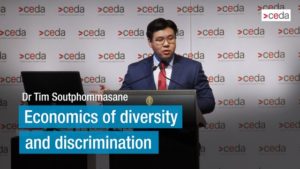 The Leading for Change report released by Race Discrimination Commissioner Tim Soutphommasane finds that 75.9% of Australia’s most senior leaders have an Anglo-Celtic background, while 19% have a European background. Just 4.7% have a non-European background and only 0.4% have an Indigenous background. The report finds just eight people from non-Anglo-Celtic and non-European backgrounds are at the helm of ASX 200 listed organisations. Meanwhile, not one of the 30 members of the Federal Ministry has a non-European background, while just one has an Indigenous background. In the public service, 99% of the heads of federal and state government departments have an Anglo-Celtic or European background, along with 38 of the 39 vice-chancellors.
The Leading for Change report released by Race Discrimination Commissioner Tim Soutphommasane finds that 75.9% of Australia’s most senior leaders have an Anglo-Celtic background, while 19% have a European background. Just 4.7% have a non-European background and only 0.4% have an Indigenous background. The report finds just eight people from non-Anglo-Celtic and non-European backgrounds are at the helm of ASX 200 listed organisations. Meanwhile, not one of the 30 members of the Federal Ministry has a non-European background, while just one has an Indigenous background. In the public service, 99% of the heads of federal and state government departments have an Anglo-Celtic or European background, along with 38 of the 39 vice-chancellors.
Sexual harassment. Sexual harassment is an issue that has existed in various forms within the workplace and our wider society for a very long time. This is a human rights issue, one that many will see as a part of the broader gender equality discussion that has started to assume its rightful prominence at board and executive levels. According to AICD’s Dr David Cooke, boards may well set the tone and issue directives, but the real work must be done at the executive level: “The importance that the CEO places on creating a safe workplace, free of sexual harassment, is paramount and true leadership must be publicly demonstrated.” However, it is inadequate if the standards being espoused are not driven through every level of management, and understood and practised by all employees, contractors and other stakeholder groups. Cooke said, “When it comes to sexual harassment, it needs to be amongst our highest priorities because it is completely wrong and totally unacceptable, not simply because of some reputational risk mitigation strategy.”
Care for older people. Two federal bodies have been merged to create the independent Aged Care Quality and Safeguards Commission, which will also take over regulatory functions when it begins operating from 2019. A recent inquiry into the federal regulatory regime, catalysed by revelations of horrific abuse at the Oakden Older Persons Mental Health Service in South Australia, has led to the promise of options for a Serious Incident Response Scheme to be put forward to prevent such incidents occurring again. 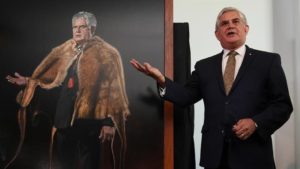 The Minister for Aged Care, Ken Wyatt said, “Our senior Australians have built the nation that we enjoy today. They have rightly earned the respect of the community and must be cared for with the dignity they deserve.” As an ambassador of the National Older Women’s Network I am a member of the Global Alliance for the Rights of Older People in Australia and we are working towards a UN convention on the rights of older people.
The Minister for Aged Care, Ken Wyatt said, “Our senior Australians have built the nation that we enjoy today. They have rightly earned the respect of the community and must be cared for with the dignity they deserve.” As an ambassador of the National Older Women’s Network I am a member of the Global Alliance for the Rights of Older People in Australia and we are working towards a UN convention on the rights of older people.
Women in Australia.
Women and Leadership Australia (WLA) has released its 2018 list of women who will be receiving excellence in women’s leadership awards at events across the country in the coming months. The awards recognise individuals who have worked to elevate the visibility and importance of Australian women achieving equitable access to higher levels of leadership across all industries and organisations. Gail Kelly receives the national award, for pioneering as the first female CEO of a major bank, Westpac; Professor Gillian Triggs in Sydney as the former president of the Australian Human Rights Commission; Magda Szubanski in Melbourne in recognition of her comedy, acting, writing and activism; Dr Kirstin Ferguson in Brisbane, for a leading company director, role model to women, and the #CelebratingWomen campaign recognising 757 women from 37 countries; Major General Simone Wilkie AO in Canberra for Commander of the Australian Defence College and the Australian Defence Force; 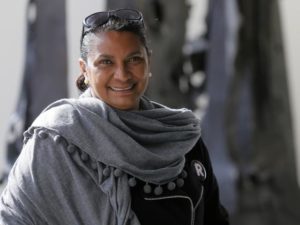 Nova Peris OAM in Darwin, for achievements as an Olympic Gold Medallist, Federal Senator and adviser across sport and recreation; Dr Kate Stannage in Perth as President of the Australian Paediatric Orthopaedic Society; Taryn Brumfitt in Adelaide, for campaigning on women’s body image and founder of the Body Image Movement; Marita Cheng in Hobart as a women-in-technology advocate and technology entrepreneur. These high achievers have shared their opinions and persevered, many despite relentless campaigns against their work.
Nova Peris OAM in Darwin, for achievements as an Olympic Gold Medallist, Federal Senator and adviser across sport and recreation; Dr Kate Stannage in Perth as President of the Australian Paediatric Orthopaedic Society; Taryn Brumfitt in Adelaide, for campaigning on women’s body image and founder of the Body Image Movement; Marita Cheng in Hobart as a women-in-technology advocate and technology entrepreneur. These high achievers have shared their opinions and persevered, many despite relentless campaigns against their work.
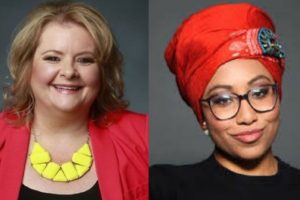 Magda Szubanski and Yassmin Abdel-Magdied have also been officially recognised for their efforts, receiving free speech awards from Liberty Victoria. Szubanski, a comedian, actor, author and activist, received Australia’s top free speech honour, the Voltaire Award, in recognition of her work for marriage equality. Szubanski became instrumental in the marriage equality campaign by lobbying and leading, making numerous media appearances, and frequently addressing rallies in support of the cause. Abdel-Magdied, a mechanical engineer, social advocate, author and broadcaster received The Young Voltaire Award for speaking out on several issues, including for her February 2017 Q&A appearance that received 12 million views in just a week, her acclaimed TED ‘What does my headscarf mean to you’, her autobiography Yassmin’s Story, and her many public appearances speaking out against racism, discrimination and harmful stereotypes and giving voice to the experience of young Muslim women in Australia and beyond. Behrouz Boochani, a journalist currently being held on Manus Island received the Empty Chair award, given to someone who cannot be present because they are detained or in jail as a consequence of their exercise of free speech. He has shared stories and details of life on Manus, with his work published in the Guardian and elsewhere, and for his film Chauka, Please Tell Us the Time.
Magda Szubanski and Yassmin Abdel-Magdied have also been officially recognised for their efforts, receiving free speech awards from Liberty Victoria. Szubanski, a comedian, actor, author and activist, received Australia’s top free speech honour, the Voltaire Award, in recognition of her work for marriage equality. Szubanski became instrumental in the marriage equality campaign by lobbying and leading, making numerous media appearances, and frequently addressing rallies in support of the cause. Abdel-Magdied, a mechanical engineer, social advocate, author and broadcaster received The Young Voltaire Award for speaking out on several issues, including for her February 2017 Q&A appearance that received 12 million views in just a week, her acclaimed TED ‘What does my headscarf mean to you’, her autobiography Yassmin’s Story, and her many public appearances speaking out against racism, discrimination and harmful stereotypes and giving voice to the experience of young Muslim women in Australia and beyond. Behrouz Boochani, a journalist currently being held on Manus Island received the Empty Chair award, given to someone who cannot be present because they are detained or in jail as a consequence of their exercise of free speech. He has shared stories and details of life on Manus, with his work published in the Guardian and elsewhere, and for his film Chauka, Please Tell Us the Time.
Six years ago a small group of women made a bold move, creating the Stella Prize, a major literary prize for women’s writing, that reclaimed Stella ‘Miles’ Franklin‘s first name, in order to help combat the unconscious gender bias occurring in the literary world. The effects have been fast and far-reaching, shifting the numbers on diversity. Hard data proved that women writers were underrepresented in three key areas: as winners of the major literary prizes, authors of the books that received the most reviews and media coverage, and authors of the books on the school curriculum. Literary value is a cultural construct, as are our expectations of what men and women are good at. In the literary world, the books that win the major prizes shape our culture, national identity and form the canon that we teach the next generation. Who wins prizes, gets reviewed, and are taught in schools sends clear messages about whose voices, whose stories and whose experiences are most important.
In material terms, earning a living as a writer is pretty tough in Australia. Currently, the average annual salary that authors earn from their writing is $10,900. Prize money – $50,000 in the case of the Stella Prize – is a significant additional income to a writer, as is the boost to sales. Having your book added to the school curriculum is also an important generator of increased sales and income. In establishing the Stella Prize the founders aimed to celebrate Australian women’s contribution to literature and shine a light on all the talented female authors who were being overlooked. Six years on, the effects have been fast and far-reaching. Not only have women won the Stella Prize for the past five years, they are now winning more prizes generally. The Miles Franklin Literary Award, established by a bequest in Stella Franklin’s will, had been won only 14 times by a woman in the 55 years before the Stella Prize was founded. In the past five years, four of five winners have been women and 17 of the 25 short-listees, with the first-ever all-female shortlist in 2013.
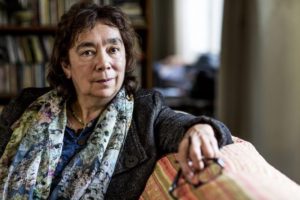 Looking back on her long and successful writing career, the 2018 winner of the Stella Prize for her non-fiction book Tracker, Alexis Wright, says she remembers “working hard, and constantly, and thinking deeply”. Her $50,000 prize follows Wright’s Miles Franklin Award for her novel, Carpentaria in 2006. She says that she pushed through the ups and downs of writing large manuscripts by always holding on to the belief that she had made the right decisions regarding how to write and construct books. She said, “Tracker is a departure from my recent fictional work of Carpentaria and The Swan Book, and I have created the book as a collective memoir of a remarkable man. I had to create a different form in this work to capture the scope of his personality, his work, and the world he operated in. I thought very deeply about how to develop this book by using our own Aboriginal storytelling principle of consensus. I wanted Tracker to be a book for our times and from our place in the world.”
Looking back on her long and successful writing career, the 2018 winner of the Stella Prize for her non-fiction book Tracker, Alexis Wright, says she remembers “working hard, and constantly, and thinking deeply”. Her $50,000 prize follows Wright’s Miles Franklin Award for her novel, Carpentaria in 2006. She says that she pushed through the ups and downs of writing large manuscripts by always holding on to the belief that she had made the right decisions regarding how to write and construct books. She said, “Tracker is a departure from my recent fictional work of Carpentaria and The Swan Book, and I have created the book as a collective memoir of a remarkable man. I had to create a different form in this work to capture the scope of his personality, his work, and the world he operated in. I thought very deeply about how to develop this book by using our own Aboriginal storytelling principle of consensus. I wanted Tracker to be a book for our times and from our place in the world.”
The Australian government has outlined a $50 million ‘seed funding’ investment to establish an Australian space agency that will strengthen the growing global space industry worth an estimated $420 billion a year.
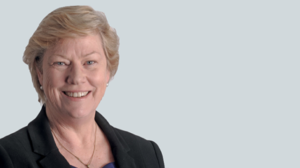
Dr Megan Clark will lead the agency for its first year, having completed a government review of the space sector. She has a PhD in economic geology and has served as Commissioner of the International Commission on Sustainable Agriculture and Climate Change. Clark led BHP Billiton’s global efforts in health, safety, environment and community engagement prior to becoming in 2014 the Chief Executive of the Commonwealth Scientific and Industrial Research Organisation (CSIRO). She is a principal in the Global Research Alliance that brings together nine global applied research peers to support inclusive innovation for the world’s most disadvantaged.
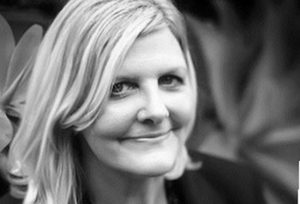 The Australian Football League’s first female commissioner and champion of the AFL Respect and Responsibility Policy, Sam Mostyn, has been named Chair of Australia’s National Research Organisation for Women’s Safety (ANROWS), an independent, not-for-profit company established under Australia’s National Plan to Reduce Violence against Women and their Children 2010–2022. Their mission is to translate and deliver relevant research, driving policy and practice to reduce levels of violence against women and their children. Mostyn said on her appointment: “The extent of domestic, family and sexual violence against women and their children in Australia is simply unacceptable…I am extremely proud to be serving an organisation that is confronting such a serious and complex social issue”.
The Australian Football League’s first female commissioner and champion of the AFL Respect and Responsibility Policy, Sam Mostyn, has been named Chair of Australia’s National Research Organisation for Women’s Safety (ANROWS), an independent, not-for-profit company established under Australia’s National Plan to Reduce Violence against Women and their Children 2010–2022. Their mission is to translate and deliver relevant research, driving policy and practice to reduce levels of violence against women and their children. Mostyn said on her appointment: “The extent of domestic, family and sexual violence against women and their children in Australia is simply unacceptable…I am extremely proud to be serving an organisation that is confronting such a serious and complex social issue”.
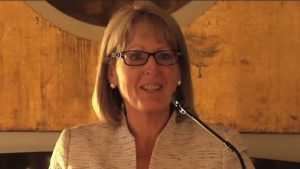 Elizabeth Cosson has been appointed secretary of the Commonwealth Department of Veterans’ Affairs (DVA) that has now achieved gender parity at the most senior level of the Australian Public Service, with nine women and nine men serving as secretaries. Cosson has been the deputy secretary at DVA since May 2016, has impressed with her professionalism, dedication and determination to care for veterans and their families, and has been instrumental in the reform process currently underway. She served in the Army for over 30 years, reached the rank of Major General – the first woman to do so, and was given the Member of the Order of Australia for exceptional service to the military and the broader Defence organization. She has also earned the Conspicuous Service Cross that recognizes her outstanding achievement as chief of staff to the Peace Monitoring Group Bougainville, and in logistic planning and management of the Combat Force of Land Headquarters.
Elizabeth Cosson has been appointed secretary of the Commonwealth Department of Veterans’ Affairs (DVA) that has now achieved gender parity at the most senior level of the Australian Public Service, with nine women and nine men serving as secretaries. Cosson has been the deputy secretary at DVA since May 2016, has impressed with her professionalism, dedication and determination to care for veterans and their families, and has been instrumental in the reform process currently underway. She served in the Army for over 30 years, reached the rank of Major General – the first woman to do so, and was given the Member of the Order of Australia for exceptional service to the military and the broader Defence organization. She has also earned the Conspicuous Service Cross that recognizes her outstanding achievement as chief of staff to the Peace Monitoring Group Bougainville, and in logistic planning and management of the Combat Force of Land Headquarters.
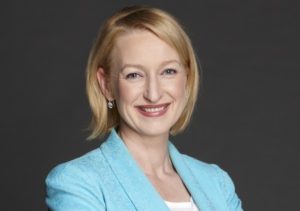 Leading private sector human resources executive Emma Hogan has been appointed New South Wales’ Public Service Commissioner. Noting the position’s focus on lifting standards and improving outcomes, Premier Gladys Berejiklian said on the appointment: “Our Government’s vision is for the NSW public sector to be known as people focused and engaged, with a dynamic culture that delivers high quality services and infrastructure throughout the State.” Other senior bureaucrats said, “Emma has a strong track record in people and change management within large and complex organisations, and her strong stakeholder and communications skills will serve her well in continuing to drive change and readying the public sector for the future…leadership that combines private sector focus and public-sector principles”.
Leading private sector human resources executive Emma Hogan has been appointed New South Wales’ Public Service Commissioner. Noting the position’s focus on lifting standards and improving outcomes, Premier Gladys Berejiklian said on the appointment: “Our Government’s vision is for the NSW public sector to be known as people focused and engaged, with a dynamic culture that delivers high quality services and infrastructure throughout the State.” Other senior bureaucrats said, “Emma has a strong track record in people and change management within large and complex organisations, and her strong stakeholder and communications skills will serve her well in continuing to drive change and readying the public sector for the future…leadership that combines private sector focus and public-sector principles”.
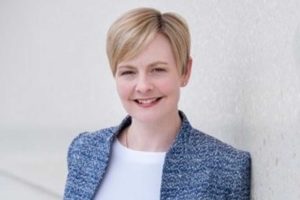 Caroline Spencer has been appointed Western Australia’s Auditor General for the next ten years, the first woman to serve in this role. She has previously been the managing partner of the Canberra-based Vista Advisory, a firm she co-founded in 2008 specialising in governance reviews, financial and performance audits and reviews of public sector agencies. In 2017 she was appointed as a non-executive member of Certified Practicing Accountants Australia and has previously provided advice and assurance to the Australian Electoral Commission on its risk management, financial and performance reporting. Treasurer Ben Wyatt noted that her appointment to lead a statutory review of WA’s auditor general and his office in 2015 gave her plenty of background for the role.
Caroline Spencer has been appointed Western Australia’s Auditor General for the next ten years, the first woman to serve in this role. She has previously been the managing partner of the Canberra-based Vista Advisory, a firm she co-founded in 2008 specialising in governance reviews, financial and performance audits and reviews of public sector agencies. In 2017 she was appointed as a non-executive member of Certified Practicing Accountants Australia and has previously provided advice and assurance to the Australian Electoral Commission on its risk management, financial and performance reporting. Treasurer Ben Wyatt noted that her appointment to lead a statutory review of WA’s auditor general and his office in 2015 gave her plenty of background for the role.
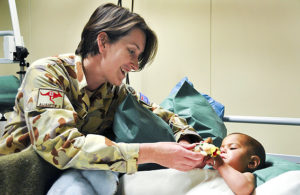 Colonel Susan Neuhaus, a surgeon, has become the first woman to deliver the Australian War Memorial’s dawn service address in Canberra, where she shared the often-overlooked role of women in recent history, going all the way back to the Boer War. “You don’t often hear [women’s] stories because it’s often the very stereotyped narrative of the male soldier in the slouch hat and the horse that we hear about,” she said. Neuhaus shared stories from history, including one about 22 women who were killed after being evacuated from Singapore in World War II. They were members of the Australian Army Nursing Service. “When their ship, the Vyner Brooke, was torpedoed in the Banka Strait, they swam through the night to the shore,” she said. “Shortly after 10am, they were lined up along the beach, still in their uniforms, a red cross emblazoned into their left sleeve, and at bayonet point they were ordered into the sea. They were under no illusion as to their fate. In those last moments before the machine guns opened fire, Matron Irene Drummond turned to her nurses with words of comfort and courage and her words speak for a nation: ‘Chins up, girls. I’m proud of you & I love you all’.”
Colonel Susan Neuhaus, a surgeon, has become the first woman to deliver the Australian War Memorial’s dawn service address in Canberra, where she shared the often-overlooked role of women in recent history, going all the way back to the Boer War. “You don’t often hear [women’s] stories because it’s often the very stereotyped narrative of the male soldier in the slouch hat and the horse that we hear about,” she said. Neuhaus shared stories from history, including one about 22 women who were killed after being evacuated from Singapore in World War II. They were members of the Australian Army Nursing Service. “When their ship, the Vyner Brooke, was torpedoed in the Banka Strait, they swam through the night to the shore,” she said. “Shortly after 10am, they were lined up along the beach, still in their uniforms, a red cross emblazoned into their left sleeve, and at bayonet point they were ordered into the sea. They were under no illusion as to their fate. In those last moments before the machine guns opened fire, Matron Irene Drummond turned to her nurses with words of comfort and courage and her words speak for a nation: ‘Chins up, girls. I’m proud of you & I love you all’.”
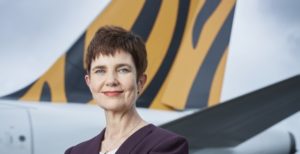 Merren McArthur will lead budget airline Tigerair from May, after being appointed to the role by parent company Virgin Australia (VA). She wants to see more women in similar top jobs, telling the Australian Financial Review, “The more women we get into CEO roles, the more things will change.” McArthur’s already had a ten-year career with VA, joining in 2008 as general counsel, before later being appointed to lead VA Regional Airlines and VA Cargo. She is also a former Rio Tinto executive and deputy state solicitor in WA. McArthur recently told The Australian: “If you come from a male-dominated industry and you start to see some women coming into the industry you straight away would be able to see the benefits they bring in terms of new ideas, new thinking…innovation will be key for aiming to further grow.”
Merren McArthur will lead budget airline Tigerair from May, after being appointed to the role by parent company Virgin Australia (VA). She wants to see more women in similar top jobs, telling the Australian Financial Review, “The more women we get into CEO roles, the more things will change.” McArthur’s already had a ten-year career with VA, joining in 2008 as general counsel, before later being appointed to lead VA Regional Airlines and VA Cargo. She is also a former Rio Tinto executive and deputy state solicitor in WA. McArthur recently told The Australian: “If you come from a male-dominated industry and you start to see some women coming into the industry you straight away would be able to see the benefits they bring in terms of new ideas, new thinking…innovation will be key for aiming to further grow.”
 It was the disturbing stories her teenage daughter reported about catching transport at night that triggered a light bulb moment for George McEncroe, a teacher, radio presenter, comedian, CEO and successful entrepreneur: “Why is there no option for women to travel together?” Not long passed, before the concept of Shebah sprang to life—a ride-sharing business operated solely by women for women. George assembled a small team and set the wheels in motion, crowdsourcing for the business, and launching on International Women’s Day 2017. Her drive was fuelled by a simple but powerful purpose: women had the right to enjoy nights out without fearing their journey home afterwards. George says she became aware of women’s wariness while teaching at TAFE. When the young men left the class at night, they did so without a care in the world while the young women would congregate together to walk home. “All this energy going into keeping themselves safe… when really it should be a universal human right to engage with the world in a way that feels safe,” she says. Only 4% of cab drivers and 10% of Uber drivers in Australia are women.
It was the disturbing stories her teenage daughter reported about catching transport at night that triggered a light bulb moment for George McEncroe, a teacher, radio presenter, comedian, CEO and successful entrepreneur: “Why is there no option for women to travel together?” Not long passed, before the concept of Shebah sprang to life—a ride-sharing business operated solely by women for women. George assembled a small team and set the wheels in motion, crowdsourcing for the business, and launching on International Women’s Day 2017. Her drive was fuelled by a simple but powerful purpose: women had the right to enjoy nights out without fearing their journey home afterwards. George says she became aware of women’s wariness while teaching at TAFE. When the young men left the class at night, they did so without a care in the world while the young women would congregate together to walk home. “All this energy going into keeping themselves safe… when really it should be a universal human right to engage with the world in a way that feels safe,” she says. Only 4% of cab drivers and 10% of Uber drivers in Australia are women.
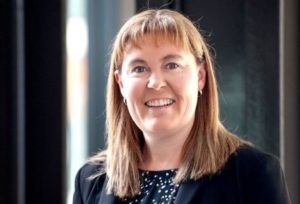 Gail Kelly retired as CEO of the Westpac Banking Group in February 2015, and now another woman will take the helm of one of Australia’s largest banks. Marnie Baker has been appointed the next managing director of Bendigo & Adelaide Bank, the fifth largest retail bank in Australia. She is an almost 30-year veteran of the bank after first joining in 1989. Baker spent more than two decades in the executive team, most recently as Chief Customer Officer, and has held numerous leadership roles, including across digital strategy, capital markets, technology and payments systems, and treasury. And Alexis George has just been appointed Deputy CEO of ANZ Bank.
Gail Kelly retired as CEO of the Westpac Banking Group in February 2015, and now another woman will take the helm of one of Australia’s largest banks. Marnie Baker has been appointed the next managing director of Bendigo & Adelaide Bank, the fifth largest retail bank in Australia. She is an almost 30-year veteran of the bank after first joining in 1989. Baker spent more than two decades in the executive team, most recently as Chief Customer Officer, and has held numerous leadership roles, including across digital strategy, capital markets, technology and payments systems, and treasury. And Alexis George has just been appointed Deputy CEO of ANZ Bank.
Women around the world
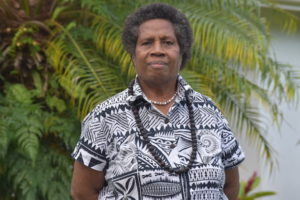 Her Majesty the Queen as Head of the Commonwealth has honoured my long-standing friend Merilyn Tahi, coordinator of the Vanuatu Women’s Centre as the 40th Commonwealth Point of Light for her inspiring work campaigning for women’s rights and supporting thousands of victims of gender-based violence. Tahi accepted the award “on behalf of the Vanuatu Women’s Centre, all the management team, and colleagues who have travelled with me in this journey since 1992…the tremendous support from my family and many other families and also the donor partners.” Commonwealth Points of Light is a special series of awards recognising inspirational volunteers throughout the Commonwealth in the lead-up to the Commonwealth Heads of Government Meeting in London in April 2018. The award was created to recognise outstanding volunteers who have delivered a significant impact on the lives of others, creating innovative approaches to social challenges and inspiring others to make a positive change within and beyond their communities.
Her Majesty the Queen as Head of the Commonwealth has honoured my long-standing friend Merilyn Tahi, coordinator of the Vanuatu Women’s Centre as the 40th Commonwealth Point of Light for her inspiring work campaigning for women’s rights and supporting thousands of victims of gender-based violence. Tahi accepted the award “on behalf of the Vanuatu Women’s Centre, all the management team, and colleagues who have travelled with me in this journey since 1992…the tremendous support from my family and many other families and also the donor partners.” Commonwealth Points of Light is a special series of awards recognising inspirational volunteers throughout the Commonwealth in the lead-up to the Commonwealth Heads of Government Meeting in London in April 2018. The award was created to recognise outstanding volunteers who have delivered a significant impact on the lives of others, creating innovative approaches to social challenges and inspiring others to make a positive change within and beyond their communities.
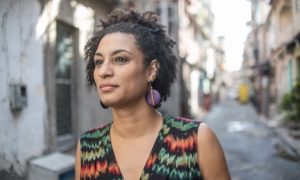 The carefully targeted shooting of a black, lesbian councillor Marielle Franco aged 38 by apparently professional killers has dealt a new blow to communities oppressed by gangs. Brazil’s favelas mourn the death of a champion that has sent shockwaves across the world and is forcing Brazilians to ask searching questions about their country’s inherent racism, violence and culture of impunity. European parliament deputies condemned the killing. Brazil’s prosecutor general, Raquel Dodge, called it an attack on democracy. The great Brazilian music star Caetano Veloso wrote a song for her. Alberto Aleixo, president of a local non-profit group who had known Franco ever since they campaigned together against the Rio police’s introduction of armoured vehicles in 2006 said, “She always had an opinion, and a desire to find a solution…she fought for the rights of women, single mothers like herself, gay people and favela residents and denounced the violence inflicted by Rio’s police on the community”. Franco is yet another human rights defender greatly missed.
The carefully targeted shooting of a black, lesbian councillor Marielle Franco aged 38 by apparently professional killers has dealt a new blow to communities oppressed by gangs. Brazil’s favelas mourn the death of a champion that has sent shockwaves across the world and is forcing Brazilians to ask searching questions about their country’s inherent racism, violence and culture of impunity. European parliament deputies condemned the killing. Brazil’s prosecutor general, Raquel Dodge, called it an attack on democracy. The great Brazilian music star Caetano Veloso wrote a song for her. Alberto Aleixo, president of a local non-profit group who had known Franco ever since they campaigned together against the Rio police’s introduction of armoured vehicles in 2006 said, “She always had an opinion, and a desire to find a solution…she fought for the rights of women, single mothers like herself, gay people and favela residents and denounced the violence inflicted by Rio’s police on the community”. Franco is yet another human rights defender greatly missed.
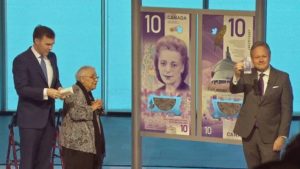 Civil rights pioneer Viola Desmond was selected from more than 26,000 submissions after the Bank of Canada announced plans to put a Canadian woman on the country’s regularly circulating currency for the first time. Born in 1914, Desmond rose to prominence as an entrepreneur. The incident that would propel her into Canada’s history books took place after her car broke down while on a business trip. Looking to kill time while her car was being repaired, she stopped by a local movie theatre. It was a segregated space – floor seats were for white people while black people were relegated to the balcony. Desmond, who was short sighted, tried to buy a floor seat but was refused, so she bought a ticket for the balcony where tax on the seats was one-cent cheaper and sat in the floor area anyway. She remained there until police arrived, dragged her out of the theatre and arrested her. She spent 12 hours in jail after being charged with tax evasion over the single penny. Later attempts to fight the conviction in court proved fruitless. Desmond died in 1965 and her act of defiance, which helped ignite Canada’s civil rights movement as well as usher in Nova Scotia’s legal end to segregation in 1954, was overlooked for decades by many. In 2010 Nova Scotia apologised to Desmond and the posthumous pardon was signed into law by Mayann Francis, the province’s first African lieutenant governor. “Here I am, 64 years later – a black woman giving freedom to another black woman,” Francis said.
Civil rights pioneer Viola Desmond was selected from more than 26,000 submissions after the Bank of Canada announced plans to put a Canadian woman on the country’s regularly circulating currency for the first time. Born in 1914, Desmond rose to prominence as an entrepreneur. The incident that would propel her into Canada’s history books took place after her car broke down while on a business trip. Looking to kill time while her car was being repaired, she stopped by a local movie theatre. It was a segregated space – floor seats were for white people while black people were relegated to the balcony. Desmond, who was short sighted, tried to buy a floor seat but was refused, so she bought a ticket for the balcony where tax on the seats was one-cent cheaper and sat in the floor area anyway. She remained there until police arrived, dragged her out of the theatre and arrested her. She spent 12 hours in jail after being charged with tax evasion over the single penny. Later attempts to fight the conviction in court proved fruitless. Desmond died in 1965 and her act of defiance, which helped ignite Canada’s civil rights movement as well as usher in Nova Scotia’s legal end to segregation in 1954, was overlooked for decades by many. In 2010 Nova Scotia apologised to Desmond and the posthumous pardon was signed into law by Mayann Francis, the province’s first African lieutenant governor. “Here I am, 64 years later – a black woman giving freedom to another black woman,” Francis said.
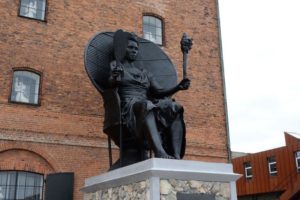 Two Danish artists, Jeannette Ehlers and La Vaugh Belle have created Denmark’s first public monument to a black woman, Mary Thomas. Ninety-eight percent of the statues in Denmark represent white males. Thomas with two other female leaders were known as ‘the three queens’ and they unleashed an uprising in 1878 called the Fireburn. Fifty plantations and most of the town of Frederiksted in St. Croix were burned in the largest labour revolt in Danish colonial history. Though Denmark prohibited trans-Atlantic slave trafficking in 1792, it did not rush to enforce the ban. The rule took effect 11 years later, and slavery continued until 1848. The project is about challenging Denmark’s collective memory and changing it. The torch and the cane bill held in the statue’s hands symbolize the resistance strategies by those who were colonized. Henrik Holm, senior research curator at Denmark’s National Gallery of Art, said “It takes a statue like this to make forgetting less easy… to fight against the silence, neglect, repression and hatred…Never before has a sculpture like this been erected on Danish soil. Now Denmark is offered a sculpture that addresses the past and is also an artwork for the future.”
Two Danish artists, Jeannette Ehlers and La Vaugh Belle have created Denmark’s first public monument to a black woman, Mary Thomas. Ninety-eight percent of the statues in Denmark represent white males. Thomas with two other female leaders were known as ‘the three queens’ and they unleashed an uprising in 1878 called the Fireburn. Fifty plantations and most of the town of Frederiksted in St. Croix were burned in the largest labour revolt in Danish colonial history. Though Denmark prohibited trans-Atlantic slave trafficking in 1792, it did not rush to enforce the ban. The rule took effect 11 years later, and slavery continued until 1848. The project is about challenging Denmark’s collective memory and changing it. The torch and the cane bill held in the statue’s hands symbolize the resistance strategies by those who were colonized. Henrik Holm, senior research curator at Denmark’s National Gallery of Art, said “It takes a statue like this to make forgetting less easy… to fight against the silence, neglect, repression and hatred…Never before has a sculpture like this been erected on Danish soil. Now Denmark is offered a sculpture that addresses the past and is also an artwork for the future.”
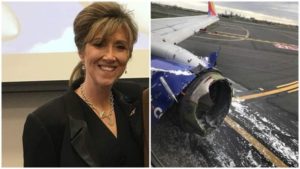 When one of Southwest Flight 1380’s engines exploded recently, shattering a passenger window and spraying shrapnel into the cabin, it was Captain Tammie Jo Shults’ years of experience in the cockpit that enabled her to guide the plane safely to an emergency landing. When the crisis struck, Shults maneuvered the plane, telling air traffic control, “Southwest 1380, we’re single engine. We have part of the aircraft missing, so we’re going to need to slow down a bit.” As terrified passengers braced for impact, she steered the Boeing 737 through a rapid descent to a smooth landing and then came out of the flight deck to check on the passengers and crew. It is clear that Shults’ skill in the cockpit saved the lives of 148 of the 149 people on board. “This is a true American hero,” passenger Diana McBride Self wrote later on Facebook. Another said, “She has nerves of steeI…I applaud her…she was awesome.” Shults is a former Navy pilot who entered flight school in 1985 and later became one of the first female pilots to fly tactical aircraft. Today, women make up only 6% of commercial airline pilots, and far fewer when Shults was training.
When one of Southwest Flight 1380’s engines exploded recently, shattering a passenger window and spraying shrapnel into the cabin, it was Captain Tammie Jo Shults’ years of experience in the cockpit that enabled her to guide the plane safely to an emergency landing. When the crisis struck, Shults maneuvered the plane, telling air traffic control, “Southwest 1380, we’re single engine. We have part of the aircraft missing, so we’re going to need to slow down a bit.” As terrified passengers braced for impact, she steered the Boeing 737 through a rapid descent to a smooth landing and then came out of the flight deck to check on the passengers and crew. It is clear that Shults’ skill in the cockpit saved the lives of 148 of the 149 people on board. “This is a true American hero,” passenger Diana McBride Self wrote later on Facebook. Another said, “She has nerves of steeI…I applaud her…she was awesome.” Shults is a former Navy pilot who entered flight school in 1985 and later became one of the first female pilots to fly tactical aircraft. Today, women make up only 6% of commercial airline pilots, and far fewer when Shults was training.
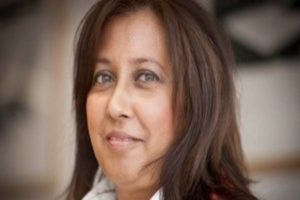 UN Women has increased its efforts to help end women’s experiences of sexual harassment, by appointing Purna Sen to the newly created role of Executive Coordinator and Spokesperson on Addressing Sexual Harassment and Other Forms of Discrimination. Sen, who is currently UN Women’s Director of Policy Division, brings a huge amount of knowledge to the appointment with almost 30 years as a ‘violence against women and human rights’ activist, expert, academic, and politician. Sen said, “There needs to be greater recognition of the regularity and widespread nature of harassment that women face. Women’s accounts tell the world how pervasive this is and we will support this momentum…#MeToo has shown women’s powerful solidarity and given notice to abusers; it is incumbent on employers and others in authority to create respectful and safe workplaces.”
UN Women has increased its efforts to help end women’s experiences of sexual harassment, by appointing Purna Sen to the newly created role of Executive Coordinator and Spokesperson on Addressing Sexual Harassment and Other Forms of Discrimination. Sen, who is currently UN Women’s Director of Policy Division, brings a huge amount of knowledge to the appointment with almost 30 years as a ‘violence against women and human rights’ activist, expert, academic, and politician. Sen said, “There needs to be greater recognition of the regularity and widespread nature of harassment that women face. Women’s accounts tell the world how pervasive this is and we will support this momentum…#MeToo has shown women’s powerful solidarity and given notice to abusers; it is incumbent on employers and others in authority to create respectful and safe workplaces.”
Midst all the political turmoil in Turkey, there is some good news on women’s rights. For the first time in the Turkish Republic’s history, a woman has been appointed deputy head of the country’s top religious body, the Directorate of Religious Affairs, or Diyanet. It is the highest office in the directorate ever held by a woman since the institution’s founding in 1924. 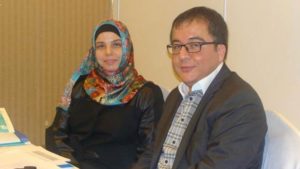 Huriye Marti, a professor at Necmettin Erbakan University, had previously edited and wrote at the directorate’s Hadith Project. In 2011, she headed Diyanet’s Family and Religious Guidance Department. Among her writings is The Traces of the Negative Image of Women in Fake Hadiths. Diyanet President Ali Erbas has said that more female officials will be employed “as soon as possible” across Turkey. There are currently seven women serving as department heads at the directorate’s headquarters.
Huriye Marti, a professor at Necmettin Erbakan University, had previously edited and wrote at the directorate’s Hadith Project. In 2011, she headed Diyanet’s Family and Religious Guidance Department. Among her writings is The Traces of the Negative Image of Women in Fake Hadiths. Diyanet President Ali Erbas has said that more female officials will be employed “as soon as possible” across Turkey. There are currently seven women serving as department heads at the directorate’s headquarters.
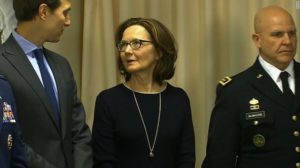 Gina Haspel will be the first woman ever appointed to the role of director of the Central Intelligence Agency (CIA) of the US. A veteran of 30 years with the CIA, Haspel has spent much of that time working undercover, and has the right skills set, experience, and judgment to lead one of US’s most critical agencies. Throughout her tenure she has received several awards, including the George H. W. Bush Award for excellence in counterterrorism and the Presidential Rank Award, the highest award in the federal civil service. Despite this, Haspel is deemed a controversial choice for such a promotion. In 2017, The New York Times reported that Haspel oversaw the torture of two terrorism suspects at a secret prison in Thailand in 2002 and was subsequently involved in the destruction of videotapes documenting that torture. She has since renounced torture before her acceptance.
Gina Haspel will be the first woman ever appointed to the role of director of the Central Intelligence Agency (CIA) of the US. A veteran of 30 years with the CIA, Haspel has spent much of that time working undercover, and has the right skills set, experience, and judgment to lead one of US’s most critical agencies. Throughout her tenure she has received several awards, including the George H. W. Bush Award for excellence in counterterrorism and the Presidential Rank Award, the highest award in the federal civil service. Despite this, Haspel is deemed a controversial choice for such a promotion. In 2017, The New York Times reported that Haspel oversaw the torture of two terrorism suspects at a secret prison in Thailand in 2002 and was subsequently involved in the destruction of videotapes documenting that torture. She has since renounced torture before her acceptance.
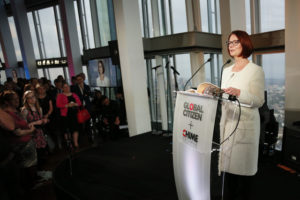 Last week Julia Gillard was appointed head of the Global Institute for Women’s Leadership. The Institute aims to hasten progress towards gender equality, recognising that we live in a world in which only 23% of parliamentarians, 26% of news media leaders, 27% of judges, and 15% of corporate board members are women. According to the World Economic Forum’s 2017 Global Gender Gap Report, the world remains 217 years off gender parity. Experts agree that many of the barriers to equality, including unconscious bias and gender stereotyping, are invisible and insidious and as a consequence are so much harder to dismantle. One quick yet much-disputed fix is quotas, however whenever quotas are discussed opponents clamour about the importance of ‘merit’ as if old boys’ networks and unconscious bias don’t exist. Quotas bring women’s merit out into the open and have on-going impacts in terms of providing role models and shifting societal attitudes.
Last week Julia Gillard was appointed head of the Global Institute for Women’s Leadership. The Institute aims to hasten progress towards gender equality, recognising that we live in a world in which only 23% of parliamentarians, 26% of news media leaders, 27% of judges, and 15% of corporate board members are women. According to the World Economic Forum’s 2017 Global Gender Gap Report, the world remains 217 years off gender parity. Experts agree that many of the barriers to equality, including unconscious bias and gender stereotyping, are invisible and insidious and as a consequence are so much harder to dismantle. One quick yet much-disputed fix is quotas, however whenever quotas are discussed opponents clamour about the importance of ‘merit’ as if old boys’ networks and unconscious bias don’t exist. Quotas bring women’s merit out into the open and have on-going impacts in terms of providing role models and shifting societal attitudes.
Women and Sport.
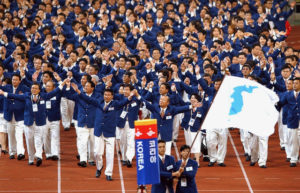
Playing for Global Goals exemplifies the role of sports in development. From Jesse Owens defying racial stereotypes to win four gold medals at the 1936 Berlin Olympics to Team Refugees demonstrating the strength of the human spirit in Rio, to the two Koreas marching together at the recent winter games in Pyeongchang – there is nothing that brings humanity together quite like sports. Although there is limited comparable data to prove the impact of sport on peace and development, the inspiring stories of compassion, cooperation, fair play and respect for the opponent are an undeniable proof of the power that sports hold over our hearts and minds. The 2030 SDGs recognize this power, describing sport as an important enabler for sustainable development that contributes to the promotion of tolerance, respect, empowerment of women and youth, health, education and social inclusion. Foxtel has recently agreed to show 90% of all women’s sport on Australian TV, four times more than all free-to-air networks combined.
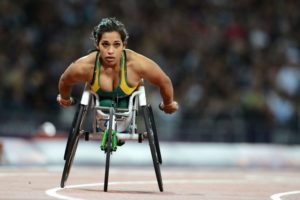 Wheelchair athlete Madison De Rozario has taken out the London Marathon completing the race in one hour 42 minutes 58 seconds, only days after her victory at the Commonwealth Games. She made history as the only Australian woman to ever win London Marathon’s women’s wheelchair event. De Rozario told interviewers after the event, “I feel very surprised still, it’s unreal, that was amazing”. She added that her recent win at the Commonwealth Games had given her the confidence to back it up in London. “Just physically doing the 42km felt a lot easier after last weekend and knowing that my body is happy to do it. Then you throw in the competitive part on top of it and I had a bit more confidence going in, knowing that I could stay and that I could maybe sprint finish,” she said after beating four-time champion Tatyana McFadden.
Wheelchair athlete Madison De Rozario has taken out the London Marathon completing the race in one hour 42 minutes 58 seconds, only days after her victory at the Commonwealth Games. She made history as the only Australian woman to ever win London Marathon’s women’s wheelchair event. De Rozario told interviewers after the event, “I feel very surprised still, it’s unreal, that was amazing”. She added that her recent win at the Commonwealth Games had given her the confidence to back it up in London. “Just physically doing the 42km felt a lot easier after last weekend and knowing that my body is happy to do it. Then you throw in the competitive part on top of it and I had a bit more confidence going in, knowing that I could stay and that I could maybe sprint finish,” she said after beating four-time champion Tatyana McFadden.
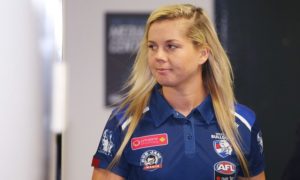 The dramatic build up to this year’s AFL Women’s (AFLW) grand final escalated on the eve of the game when Western Bulldogs captain Katie Brennan announced she would lodge a formal sex discrimination complaint against the AFL with the Australian Human Rights Commission. It compelled the AFL to completely rethink its approach to sanctioning women. Brennan’s two-game ban had raised immediate allegations of sex-based discrimination: if Brennan were a man, she would have been asked to pay a fine, instead of being suspended. The sole reason women do not get the option of paying a fine is wage disparity – the average wage for a male AFL player is $371,000, whereas AFLW rookies receive just $10,500. Rather than opting to have women pay smaller fines on a pro rata basis, the AFL went with a different system that resulted in them being sanctioned more severely. Brennan dropped her case when the AFL announced changes to the sanctions handed out in the women’s competition and agreed to change the rule to ensure AFLW players will no longer receive suspensions for identical offences that would only result in a fine in the men’s competition. “I am delighted the AFL has taken the time and responded to review and adjust the rules,” Brennan said. She did not play in the 2018 AFLW Grand Final that was won by her teammates but she is free to play in Round 1 in the next season.
The dramatic build up to this year’s AFL Women’s (AFLW) grand final escalated on the eve of the game when Western Bulldogs captain Katie Brennan announced she would lodge a formal sex discrimination complaint against the AFL with the Australian Human Rights Commission. It compelled the AFL to completely rethink its approach to sanctioning women. Brennan’s two-game ban had raised immediate allegations of sex-based discrimination: if Brennan were a man, she would have been asked to pay a fine, instead of being suspended. The sole reason women do not get the option of paying a fine is wage disparity – the average wage for a male AFL player is $371,000, whereas AFLW rookies receive just $10,500. Rather than opting to have women pay smaller fines on a pro rata basis, the AFL went with a different system that resulted in them being sanctioned more severely. Brennan dropped her case when the AFL announced changes to the sanctions handed out in the women’s competition and agreed to change the rule to ensure AFLW players will no longer receive suspensions for identical offences that would only result in a fine in the men’s competition. “I am delighted the AFL has taken the time and responded to review and adjust the rules,” Brennan said. She did not play in the 2018 AFLW Grand Final that was won by her teammates but she is free to play in Round 1 in the next season.
Work and Travels.
I have two interesting honorary positions in Australia – Adjunct Professor of Education at the University of Canberra and Conjoint Professor of Practice in the Faculty of Education and the Arts at the University of Newcastle. 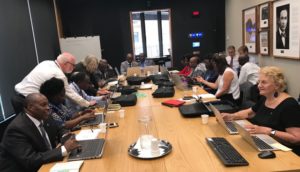 The latter brought me the great opportunity in March to work with 16 Public Service Commissioners and Directors in a delegation from the Kenyan Public Sector Commission. The Faculty of Business and Law at the University of Newcastle hosted the Kenyan delegation in an Australia Award Fellowship program on a collaboration titled Strengthening public service performance: Building capacity in effective governance. Part of my responsibility was to provide some insights into mentoring and strategic planning for gender equality for these very experienced and senior public servants at their training sessions in Canberra, Sydney and Newcastle.
The latter brought me the great opportunity in March to work with 16 Public Service Commissioners and Directors in a delegation from the Kenyan Public Sector Commission. The Faculty of Business and Law at the University of Newcastle hosted the Kenyan delegation in an Australia Award Fellowship program on a collaboration titled Strengthening public service performance: Building capacity in effective governance. Part of my responsibility was to provide some insights into mentoring and strategic planning for gender equality for these very experienced and senior public servants at their training sessions in Canberra, Sydney and Newcastle.
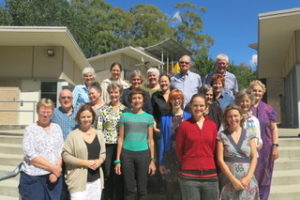 Another continuing involvement has been with indigo foundation’s development work overseas – 11 community-based projects in seven countries – managed by a volunteer board and volunteer partnership coordinators both in Australia and overseas. Two very interesting fund-raising dinners where international visitors involved in the projects will make presentations will be held on 2 June at the Moore Park Golf House in Sydney and on 15 June at the Abbotsford Convent in Melbourne.
Another continuing involvement has been with indigo foundation’s development work overseas – 11 community-based projects in seven countries – managed by a volunteer board and volunteer partnership coordinators both in Australia and overseas. Two very interesting fund-raising dinners where international visitors involved in the projects will make presentations will be held on 2 June at the Moore Park Golf House in Sydney and on 15 June at the Abbotsford Convent in Melbourne. 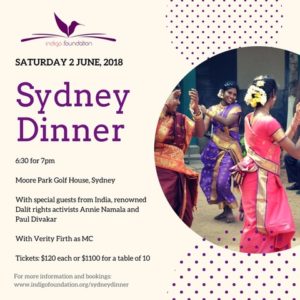 Two special guests from India, renowned civil rights activists Annie Namala and Paul Divakar will speak at the Annual Sydney Gala Dinner with Verity Firth as MC, and Ali Reza Yunaspour will speak on rebuilding education in Afghanistan at the Melbourne Winter Banquet. And of course, there’ll be delicious food, entertainment and much fun with friends old and new, in support of indigo foundation and our partner communities. https://www.indigofoundation.org/whats-new/events
Two special guests from India, renowned civil rights activists Annie Namala and Paul Divakar will speak at the Annual Sydney Gala Dinner with Verity Firth as MC, and Ali Reza Yunaspour will speak on rebuilding education in Afghanistan at the Melbourne Winter Banquet. And of course, there’ll be delicious food, entertainment and much fun with friends old and new, in support of indigo foundation and our partner communities. https://www.indigofoundation.org/whats-new/events
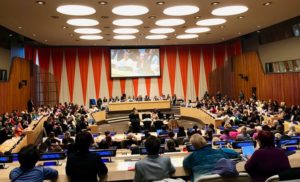 In March I was pleased to attend once again the UN’s largest annual gathering on gender equality and women’s rights in New York, which concluded with the strong commitment by UN Member States to achieving gender equality and the empowerment of rural women and girls. Coming on the heels of unprecedented global activism and public outcry to end gender injustice and discrimination worldwide, the 62nd session of the UN Commission on the Status of Women (CSW62) reached a robust agreement highlighting the urgency of empowering and supporting those who need it most. For too long women and girls living in rural areas have been left behind. Priorities are to address poverty; improve access, ownership and control of land and other productive resources; and provide opportunities and address challenges in agriculture, including food security and nutrition. The agreed conclusions also recognized that the lives of women in rural areas are not only confined to food production and agriculture, and addressed the impact of climate change, and the need for infrastructure such as for ICT, energy, transport, drinking water and sanitation.
In March I was pleased to attend once again the UN’s largest annual gathering on gender equality and women’s rights in New York, which concluded with the strong commitment by UN Member States to achieving gender equality and the empowerment of rural women and girls. Coming on the heels of unprecedented global activism and public outcry to end gender injustice and discrimination worldwide, the 62nd session of the UN Commission on the Status of Women (CSW62) reached a robust agreement highlighting the urgency of empowering and supporting those who need it most. For too long women and girls living in rural areas have been left behind. Priorities are to address poverty; improve access, ownership and control of land and other productive resources; and provide opportunities and address challenges in agriculture, including food security and nutrition. The agreed conclusions also recognized that the lives of women in rural areas are not only confined to food production and agriculture, and addressed the impact of climate change, and the need for infrastructure such as for ICT, energy, transport, drinking water and sanitation.
As usual, I met some good friends and extraordinary women at CSW 62. Tiffany Easthom Executive Director Nonviolent Peaceforce, a global non-profit organization that protects civilians in violent conflicts through unarmed strategies. It builds peace side by side with local communities and advocates for the wider adoption of these approaches to safeguard human lives and dignity. 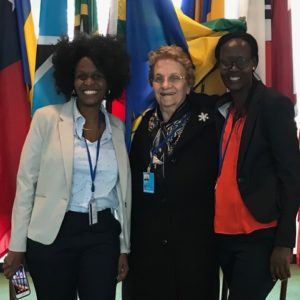 Two South Sudanese NP workers, Tandiwe Ngwenya and Sarah Nyathiang, who work on the front lines in South Sudan as unarmed peacekeepers spoke about their courageous work. Lilly Be’Soer is the founder of the women’s human rights NGO, Voice for Change, in Papua New Guinea. She has been a victim of tribal conflict and is also a survivor of polygamous marriage currently raising six children alone. She defines herself as ‘a women’s human rights defender’ and has taken the lead in facilitating the mediation of tribal conflicts and wars in PNG. Dinah Musindarwezo has just completed her contract as Executive Director with The African Women’s Development and Communication Network (FEMNET). She is one of my mentees, a gender equality expert from Rwanda whose past experience entirely focused on promotion of gender equality and women’s rights. We worked together on gender equality in Rwanda before this appointment. A mentee from Bangladesh, Kathita Rahman, who was one of my staff with the UNDP/Ministry of Women and Children Capacity Building Gender Management Program in Bangladesh, is working at UNICEF headquarters. So is my Rwandan friend Eunice Kabanyana, both of whom hosted me to a meal. Sylvie Nsanga and Mediatrice Kagaba paid their own fares from Rwanda to attend CSW62. Judith Saror, President of the Nigerian Association of University Women and Nkechi Eneh from Nigeria were with me on the Graduate Women International delegation of 20, all of whom are great women.
Two South Sudanese NP workers, Tandiwe Ngwenya and Sarah Nyathiang, who work on the front lines in South Sudan as unarmed peacekeepers spoke about their courageous work. Lilly Be’Soer is the founder of the women’s human rights NGO, Voice for Change, in Papua New Guinea. She has been a victim of tribal conflict and is also a survivor of polygamous marriage currently raising six children alone. She defines herself as ‘a women’s human rights defender’ and has taken the lead in facilitating the mediation of tribal conflicts and wars in PNG. Dinah Musindarwezo has just completed her contract as Executive Director with The African Women’s Development and Communication Network (FEMNET). She is one of my mentees, a gender equality expert from Rwanda whose past experience entirely focused on promotion of gender equality and women’s rights. We worked together on gender equality in Rwanda before this appointment. A mentee from Bangladesh, Kathita Rahman, who was one of my staff with the UNDP/Ministry of Women and Children Capacity Building Gender Management Program in Bangladesh, is working at UNICEF headquarters. So is my Rwandan friend Eunice Kabanyana, both of whom hosted me to a meal. Sylvie Nsanga and Mediatrice Kagaba paid their own fares from Rwanda to attend CSW62. Judith Saror, President of the Nigerian Association of University Women and Nkechi Eneh from Nigeria were with me on the Graduate Women International delegation of 20, all of whom are great women.
 The Permanent Mission of the Republic of Zambia to the UN and Zonta International sponsored a CSW62 partnership side event in UN Headquarters. I spoke as the Zonta representative on the theme Challenges for Rural Women and Girls: Education, empowerment and the impact of harmful traditional practices. The panel discussed lack of access to quality education, increasing cases of gender-based violence, and the negative impacts of female genital mutilation and child marriage, which affect the realization of girls’ full potential and the attainment of gender equality and economic empowerment. Other speakers included Hon Emerine Kabanashi MP, Minister of Community Development, Social Welfare, Zambia, Dr Auxilia Ponga, Permanent Secretary, Ministry of Gender, Zambia, and Mariangels Fortuny, International Labour Organisation. The seminar was chaired by President of Zonta International Sonja Honig Schough and moderated by Zonta UN facilitator Leslie Wright, who offered me generous hospitality while I spent time with other good friends after CSW62.
The Permanent Mission of the Republic of Zambia to the UN and Zonta International sponsored a CSW62 partnership side event in UN Headquarters. I spoke as the Zonta representative on the theme Challenges for Rural Women and Girls: Education, empowerment and the impact of harmful traditional practices. The panel discussed lack of access to quality education, increasing cases of gender-based violence, and the negative impacts of female genital mutilation and child marriage, which affect the realization of girls’ full potential and the attainment of gender equality and economic empowerment. Other speakers included Hon Emerine Kabanashi MP, Minister of Community Development, Social Welfare, Zambia, Dr Auxilia Ponga, Permanent Secretary, Ministry of Gender, Zambia, and Mariangels Fortuny, International Labour Organisation. The seminar was chaired by President of Zonta International Sonja Honig Schough and moderated by Zonta UN facilitator Leslie Wright, who offered me generous hospitality while I spent time with other good friends after CSW62.
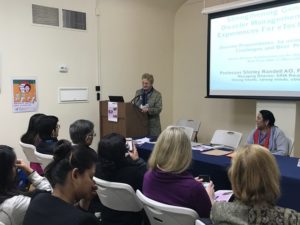 After my arrival in New York, Dr Neelam Gorhe asked me to speak at the Stree Aadhar Kendra (SAK) parallel workshop. Dr Gorhe is the founder of SAK, based in Pune Maharashtra India, and has been working for three decades specialising in sensitising police on violence against women and assisting with gender issues during natural disasters. The workshop topic was The Strengthening of Gender Just Disaster Management: Global experiences for eTech-response: Disaster preparedness by using technology. I focussed on Challenges and best practices in IT for disaster management. The aim of the workshop was to provide information on the use of modern e-technology leading to working towards an NGO global community discussion to find the way forwards.
After my arrival in New York, Dr Neelam Gorhe asked me to speak at the Stree Aadhar Kendra (SAK) parallel workshop. Dr Gorhe is the founder of SAK, based in Pune Maharashtra India, and has been working for three decades specialising in sensitising police on violence against women and assisting with gender issues during natural disasters. The workshop topic was The Strengthening of Gender Just Disaster Management: Global experiences for eTech-response: Disaster preparedness by using technology. I focussed on Challenges and best practices in IT for disaster management. The aim of the workshop was to provide information on the use of modern e-technology leading to working towards an NGO global community discussion to find the way forwards.
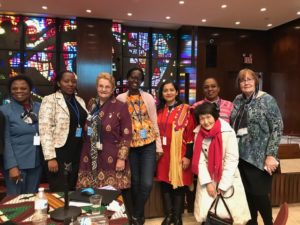 My dear colleague Professor Jaya Dantas, Dean International at Curtin University in WA and I once again worked together to present on Education and ICT with rural women in Rwanda and Australia. With the wonderful help of Josephine Nyiranzeyimana, Government Chief Information Officer at the Rwanda Information Society Authority we drew on examples from rural and remote Australia and Rwanda. This panel session highlighted the potential for ICT to improve educational outcomes for rural and remote women through use of on-line education and to improve health and wellbeing through the use of Telehealth interventions. Josephine and I discussed the successes of the Rwanda’s implementation of ICT initiatives, the University for Health Equity, and open source decision-making health support systems used especially with women’s health. The session demonstrated the interconnections between education and health and the SDGs 3, 4, 5, 15 and 17. After CSW62, Jaya and I visited the magnificent Grand Canyon for the first time.
My dear colleague Professor Jaya Dantas, Dean International at Curtin University in WA and I once again worked together to present on Education and ICT with rural women in Rwanda and Australia. With the wonderful help of Josephine Nyiranzeyimana, Government Chief Information Officer at the Rwanda Information Society Authority we drew on examples from rural and remote Australia and Rwanda. This panel session highlighted the potential for ICT to improve educational outcomes for rural and remote women through use of on-line education and to improve health and wellbeing through the use of Telehealth interventions. Josephine and I discussed the successes of the Rwanda’s implementation of ICT initiatives, the University for Health Equity, and open source decision-making health support systems used especially with women’s health. The session demonstrated the interconnections between education and health and the SDGs 3, 4, 5, 15 and 17. After CSW62, Jaya and I visited the magnificent Grand Canyon for the first time.
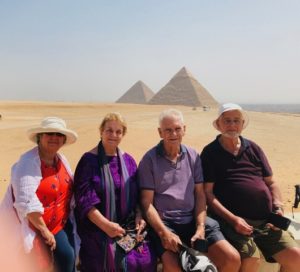 In April I attended the Federation of University Women of Africa (FUWA) Conference in Egypt and enjoyed meeting with old friends and contributing to the FUWA program and the Rotary Club of Cairo Metropolitan and Rotarians in Alexandria before embarking on a visit to Aswan and Luxor and a river cruise down the mighty Nile River. I had visited the sources of the Nile in Rwanda and Uganda so it was special to see the upper and lower Nile and its Delta with the High Dam and the many ways the river is harnessed for the 99% of the Egyptian population that live along its banks. It was also a pleasure to swim in both the Red Sea and the Mediterranean. My 79-year older brother Bob Izett organized the tour when he knew I was going to be in Egypt, and I have appreciated being with him and my 77-year old younger brother Bill Izett, the first occasion for us to have any real time together since I left home to be married at 18 years of age. We also enjoyed a cruise on the Adriatic Sea, which Bob had organised. My cabin companion was soul-mate Kathleen Messina, a US friend my brothers had met on a previous cruise and have ‘adopted’ as their little sister.
In April I attended the Federation of University Women of Africa (FUWA) Conference in Egypt and enjoyed meeting with old friends and contributing to the FUWA program and the Rotary Club of Cairo Metropolitan and Rotarians in Alexandria before embarking on a visit to Aswan and Luxor and a river cruise down the mighty Nile River. I had visited the sources of the Nile in Rwanda and Uganda so it was special to see the upper and lower Nile and its Delta with the High Dam and the many ways the river is harnessed for the 99% of the Egyptian population that live along its banks. It was also a pleasure to swim in both the Red Sea and the Mediterranean. My 79-year older brother Bob Izett organized the tour when he knew I was going to be in Egypt, and I have appreciated being with him and my 77-year old younger brother Bill Izett, the first occasion for us to have any real time together since I left home to be married at 18 years of age. We also enjoyed a cruise on the Adriatic Sea, which Bob had organised. My cabin companion was soul-mate Kathleen Messina, a US friend my brothers had met on a previous cruise and have ‘adopted’ as their little sister.
I will be doing a lot of travel during the next months but should be home-based for most of the last half of the year. I travel to London for the last week in June to attend the Fairbreak Cricket Day of Gender Equality, watch the gender equality cricket match between Sir Paul Getty XI and FairBreak XI, and speak at the gender equality round table on 30 May. This is the first time the Sir Paul Getty XI will field a women’s cricket team having invited the FairBreak Global XI to play this inaugural match. The Fairbreak Global XI is made up of players from 11 different countries: Rwanda, Vanuatu, West Indies, India, Singapore, Oman, Hong Kong, Australia, Canada, New Zealand, and USA. We are raising funds to live-stream the game – https://www.gofundme.com/fairbreak
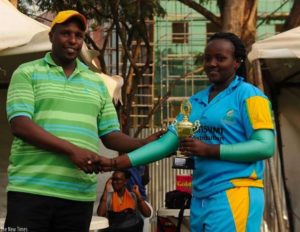 I am delighted that a Rwandan, Diane Bimenyimana will be in the team and that the High Commissioner of Rwanda, London HE Yamina Karitanyi will be hosting the international XI at a reception. Diane is a 24-year-old all-rounder and has featured in the Rwanda women’s national team since 2013. She was awarded the ‘player of series’ in the Rwanda women’s league 2017. I will visit Rwanda in the first week of June on my way back to Sydney and will discuss the possibility of a Fairbreak African tournament on their amazing new cricket ground, visiting Kenya colleagues for a few days before returning to Sydney.
I am delighted that a Rwandan, Diane Bimenyimana will be in the team and that the High Commissioner of Rwanda, London HE Yamina Karitanyi will be hosting the international XI at a reception. Diane is a 24-year-old all-rounder and has featured in the Rwanda women’s national team since 2013. She was awarded the ‘player of series’ in the Rwanda women’s league 2017. I will visit Rwanda in the first week of June on my way back to Sydney and will discuss the possibility of a Fairbreak African tournament on their amazing new cricket ground, visiting Kenya colleagues for a few days before returning to Sydney.
Bereavements
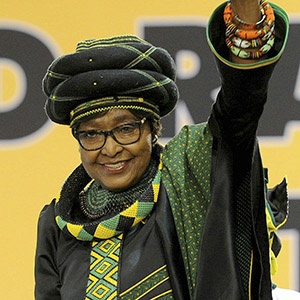
Nomzamo Winnie Madikizela-Mandela, mother of South Africa and global struggle icon has died aged 81 after a long illness and is mourned by her comrades in Nigeria, Niger, England, Ethiopia, all over Africa and even Australasia. The Parliament of South Africa has paid a fitting tribute to this South African anti-Apartheid activist and politician, the ex-wife of Nelson Mandela. Thandi Modise said, “Her life, her trials, her tribulations, her few moments of joy, track what we went through as a nation and South Africans as a nation must remember the huge contribution she made.” MP Sophie Thembekwayo said, “Mama Winnie was a practical person who offered practical solutions to the communities in dire need at all times. We have lost a heroine.” Articulate, fearless, vocal, unflinching, feisty fiery freedom fighter she was detained and tortured by the Apartheid State and seriously maligned by propaganda about her activities in its efforts to destroy her. Winnie served as an MP from 1994 to 2003, and from 2009 until her death, and was a deputy minister from 1994 to 1996.
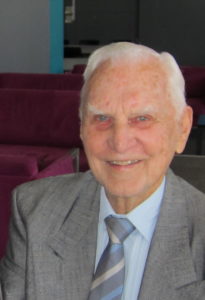 My cousin John Greenway, aged 87 died peacefully on 9 March 2018 in Perth. His widow Diane and his children said he was ‘passionate about learning, would celebrate understanding, colourful, cheeky, fair, proud of our achievements, inspiring, head strong, encouraging, wise and incredibly brave’. He won entrance to my alma mater, Perth Modern School and returned as a science teacher. John was passionate about teaching maths but unhappy about the ‘rote learning’ approach under which the student learned many methods and only had to decide which one to apply to each problem. He was admitted as the first ‘alien’ to the National Science Foundation Course at Princeton in the USA where he examined new approaches to the teaching of maths, and on his return to Australia was appointed Superintendent of Mathematics. The Maths Revolution began as teachers were retrained, the syllabus was updated, new texts were prepared, and the exam system was modified. Students had to analyse, think, understand and apply. John made a real difference to education in WA.
My cousin John Greenway, aged 87 died peacefully on 9 March 2018 in Perth. His widow Diane and his children said he was ‘passionate about learning, would celebrate understanding, colourful, cheeky, fair, proud of our achievements, inspiring, head strong, encouraging, wise and incredibly brave’. He won entrance to my alma mater, Perth Modern School and returned as a science teacher. John was passionate about teaching maths but unhappy about the ‘rote learning’ approach under which the student learned many methods and only had to decide which one to apply to each problem. He was admitted as the first ‘alien’ to the National Science Foundation Course at Princeton in the USA where he examined new approaches to the teaching of maths, and on his return to Australia was appointed Superintendent of Mathematics. The Maths Revolution began as teachers were retrained, the syllabus was updated, new texts were prepared, and the exam system was modified. Students had to analyse, think, understand and apply. John made a real difference to education in WA.
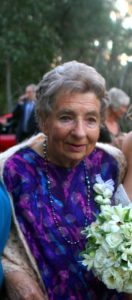 Shortly afterwards my sister-in-law Alva Ingamells died at the age of 86 in Victoria. We had a wonderful family reunion to celebrate her life with all of her children and their partners, grandchildren and great grandchild. The Loneragan cousins from Brisbane and Perth attended and Erica, Judy and I represented the Randells at the thanksgiving service for her life at the Pakenham Uniting Church. Unfortunately, brother Alan was briefly in hospital in Canberra and unable to be there. Alva was a marvellous nurse, dairy farmer, church and community contributer for much of her life plus a wonderful mother, grandmother and a very proud great-grandmother to Eadie. She is remembered as a strong, gracious lady who was always caring and interested in all she touched.
Shortly afterwards my sister-in-law Alva Ingamells died at the age of 86 in Victoria. We had a wonderful family reunion to celebrate her life with all of her children and their partners, grandchildren and great grandchild. The Loneragan cousins from Brisbane and Perth attended and Erica, Judy and I represented the Randells at the thanksgiving service for her life at the Pakenham Uniting Church. Unfortunately, brother Alan was briefly in hospital in Canberra and unable to be there. Alva was a marvellous nurse, dairy farmer, church and community contributer for much of her life plus a wonderful mother, grandmother and a very proud great-grandmother to Eadie. She is remembered as a strong, gracious lady who was always caring and interested in all she touched.
The bereavements of family members less than a decade older than me make me aware again of how fortunate I am to still be fit and well enough to lead a very full life, and remind me of the words of Martha Medeiros, often mistakenly attributed to Pablo Neruda.
“You start dying slowly
if you do not travel,
if you do not read,
If you do not listen to the sounds of life,
If you do not appreciate yourself.
You start dying slowly
When you kill your self-esteem;
When you do not let others help you.
You start dying slowly
If you become a slave of your habits,
Walking every day on the same paths…
If you do not change your routine,
If you do not wear different colours
Or you do not speak to those you don’t know.
You start dying slowly
If you avoid to feel passion
And their turbulent emotions;
Those which make your eyes glisten
And your heart beat fast.
You start dying slowly
If you do not change your life when you are not satisfied with your job, or with your love,
If you do not risk what is safe for the uncertain,
If you do not go after a dream,
If you do not allow yourself,
At least once in your lifetime,
To run away from sensible advice.”
Shirley
